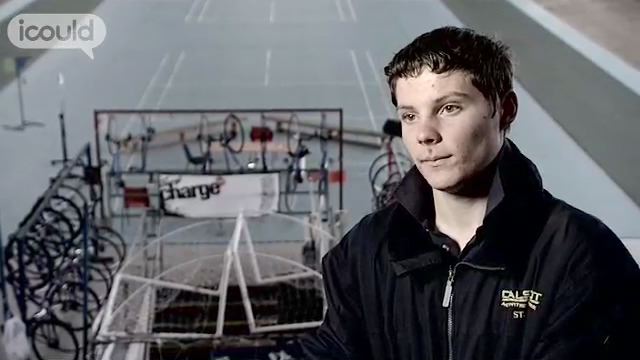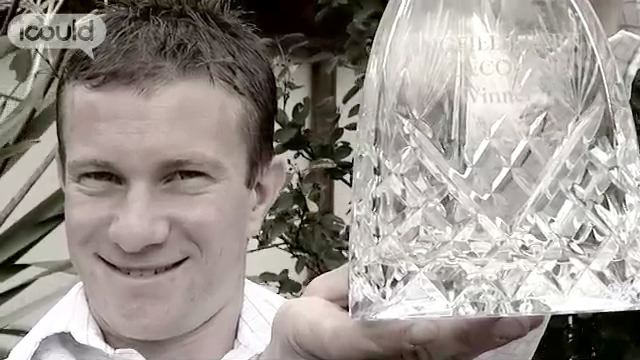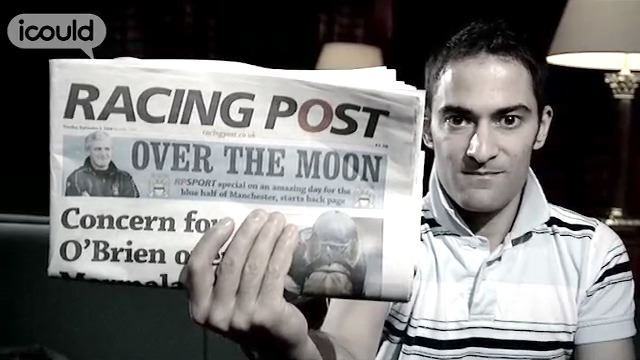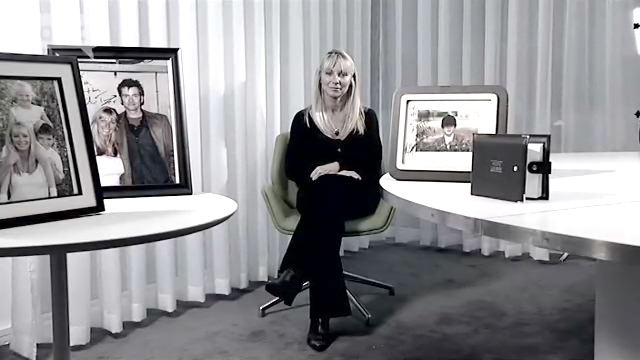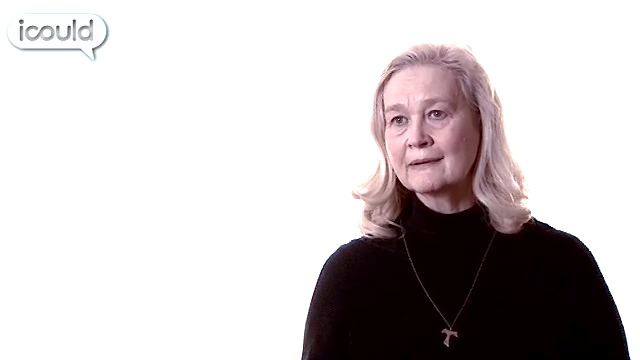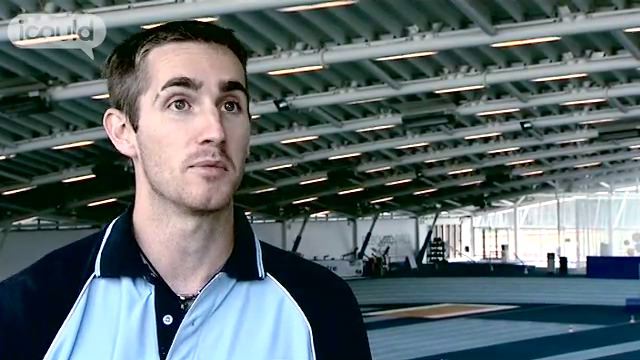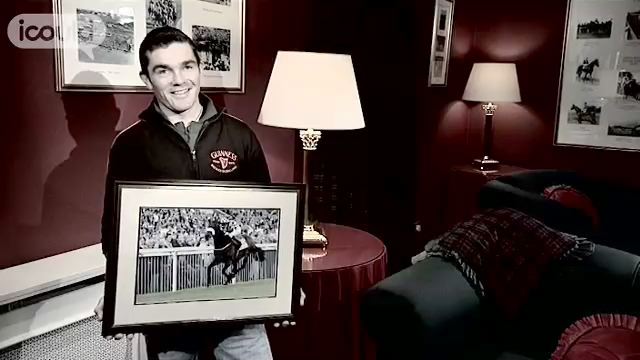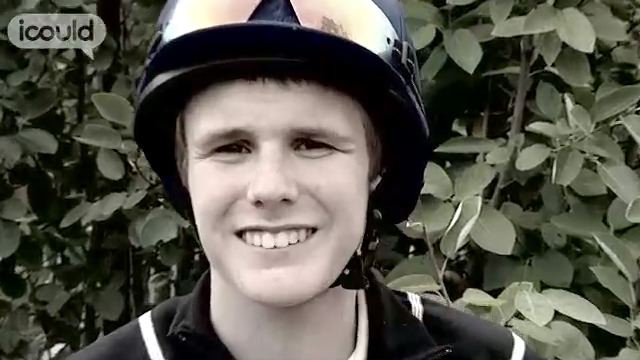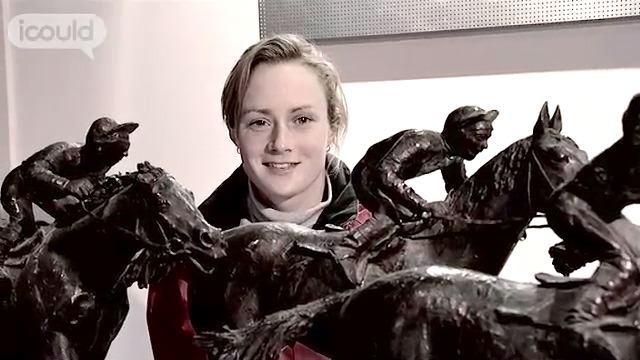Racehorse Riding Instructor
British Racing School
Glen S
00:00:04 OK my name is Glen S, and the job title’s a Riding Instructor. Here at the British Racing School a Riding Instructor is to teach students from the age of 16 to up to 19. Basically it’s to teach them how to ride race horses, including in that there’s also the sort of management and care of them. So preparing them for a job in the industry.
00:00:26 I was always interested in racing. Sort of when I was at school never really had an idea of what I wanted to do. And when it got to sort of the age of 15, when we did some work experience at school, and I thought Well I’d better start looking at what I want to do. And that’s when it come up in sort of the daily notices one morning, that there was a chance to come here, to the British Racing School, on a five day course, where I could have a sort of insight into the industry.
00:00:51 I never probably looked at myself as being that good, probably again through lack of experience. But I was lucky enough to get offered a job at Luca Cumani’s yard, which is in Newmarket, and he had a string of 150 horses, which is a very big yard, and he’s a very sort of top, well-known trainer. In effect it took me quite a while actually to learn the ropes, and it wasn’t till a year and a half, which is quite a long time, he decided that I was ready therefore to get out my apprentice licence, which really was my goal, was to race ride in the public eye. And then probably about a month later he came up to me in the stables when I was sort of showing the horses for him, and said Oh you’ve got your first ride in three days’ time. It was a massive shock, and that was at Newmarket, which sort of local track, and so all my family and friends come, and it was an evening meeting as well, so it was really nice, sort of the scene was set.
00:01:43 This was won at Lingfield Park on Petrus, so it was my favourite horse. And I actually won it on the day of my birthday, which was something I’ll never actually forget. And it’s probably the best present I’ve got. A lot of the time they give you bottles of champagne, but this is something that I can really keep on the side, and it always brings back the memory of what I achieved on that day.
00:02:50 I was at – riding out for a trainer in Guildford, we were only sort of travelling at 10 to 15 miles an hour. But it – but unfortunately I come off and landed on sort of my neck, and therefore had a crush injury to my back, where I broke T11 and T10 bones. I just felt sort of lowest low basically. The hardest thing was sort of laying on the bed with this cocoon brace around you that I knew I was going to have on for the next six months, and worse thing probably I could have done was to watch the races. But because I was, you know, heart and soul was in racing I used to watch it, and when the horses were running that I should be on and winning – after the race I just felt so low and bad. So then, after that year I just decided that, unfortunately my dream has gone, and this is something I’m not going to be able to continue to do. So then I applied for the job here and there was 40 applicants, again never thought I’d have a chance of actually getting the job, but thought it’s something I need to do to start sort of, you know, not just laying on my back sulking at home.
00:03:11 It was difficult, it took a lot of training, JETS were very good, I had to do some sort of home training as well, where I had to get me NVQ level three in Horse Care Management, and that was quite hard work. And it took six months of training to actually become an instructor, so it’s quite frightening. And especially when I started I was only 24, some of the students that were coming in were 19, there was not that much of an age gap. So I had to try and get them to respect me as a person, and hopefully from what I’ve achieved, where I had just over 700 rides and sort of 42 winners, so hopefully that’s enough to see that I’ve actually gone out there and done something.
00:03:48 When I’m here I can actually – I feel I can do something, and I’m helping these students to progress and to see them improve, and giving them some of my knowledge and experience, and hoping that they can go on and achieve my goal, that I wanted sort of to be a top professional jockey.
00:04:05 ENDS
Glen S is a Riding Instructor at the British Racing School. He succeeded in getting his jockey’s licence, and rode a winner at Lingfield Park on his birthday, but a spine injury brought his career plans to an end. So he applied for a job back at the British Racing School and studied hard to get the right qualifications to be an instructor. “I’m helping these students to progress and to see them improve, and giving them some of my knowledge and experience, and hoping that they can go on and achieve my goal, that I wanted to be a top professional jockey.”
More information about Sports coaches, instructors and officials
The UK average salary is £29,813
There are 37.5 hours in the average working week
The UK workforce is 47% female and 53% male
Future employment
- Coaches teams or individuals by demonstrating techniques and directing training and exercise sessions;
- Controls team selection and discipline and recruits ancillary staff such as coaches or physiotherapists;
- Monitors and analyses technique and performance, and determines how future improvements can be made;
- Deals with administrative aspects such as arranging matches, contests or appearances for athlete or team, and organising required transport and accommodation;
- Provides information and develops facilities to encourage greater participation in sport, and to enhance the standards of participants;
- Understands health and safety aspects of various activities and ensures any statutory requirements are met;
- Inspects and maintains specialised clothing and equipment;
- Manages the playing areas and competitors, starts race, competition or match and controls its progress according to established rules.
